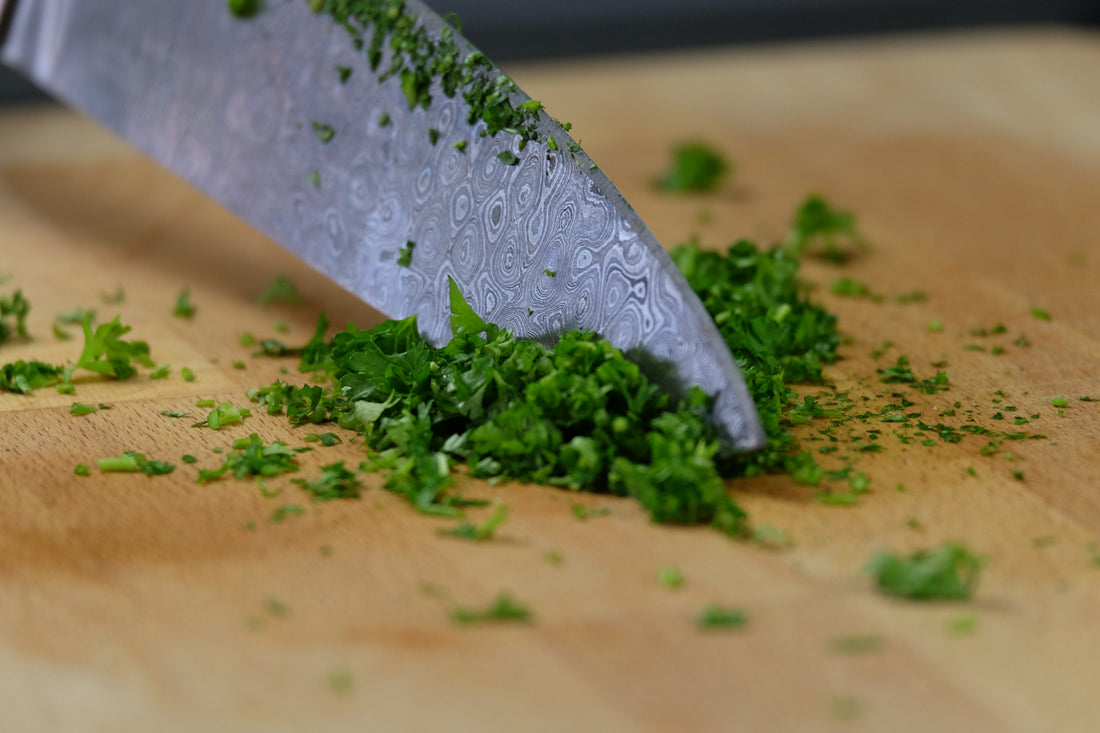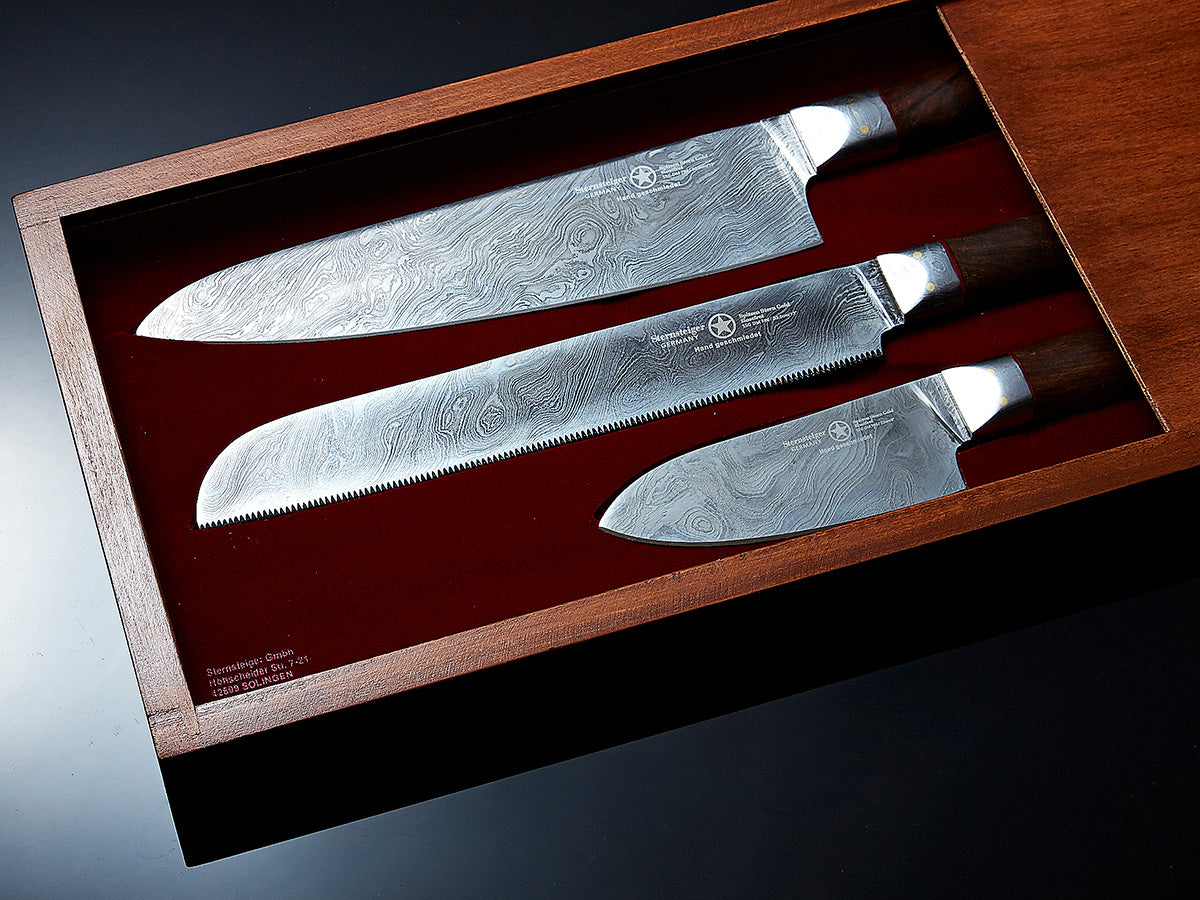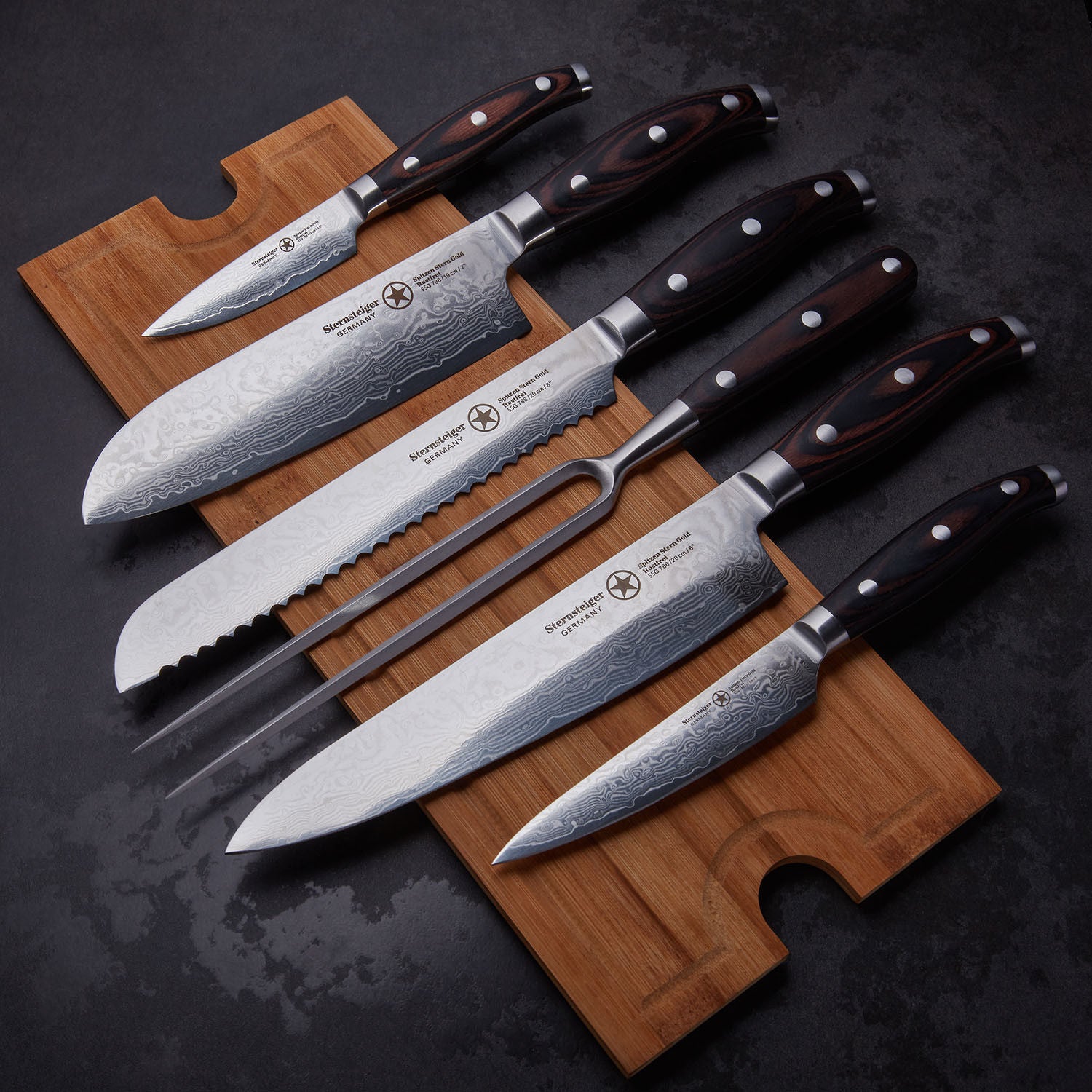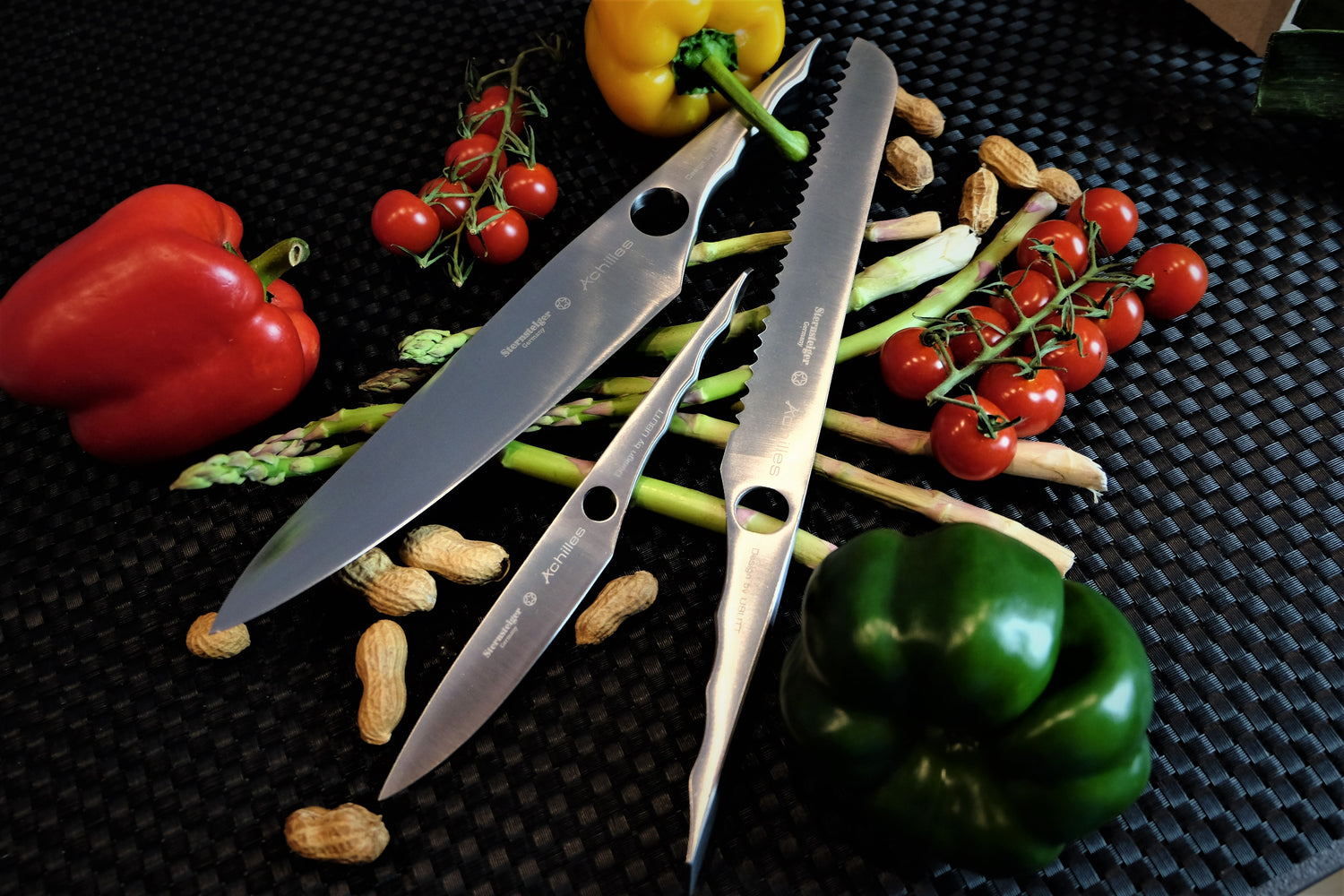
-
Damascus steel, a term that sounds almost mystical to cooking enthusiasts and knife makers, embodies a fascinating combination of tradition and craftsmanship. But what exactly lies behind this material, which impresses not only with its pattern but also with its extraordinary properties?
What is Damascus steel?
Damascus steel, also known as Damascus steel, is a type of steel that originated in the Middle East. The name is derived from the Syrian city of Damascus, a historical center for the production of this type of steel. Damascus steel is made by repeatedly folding and forging iron and steel in multiple layers. This technique, known as forge welding, results in a material that is not only notable for its distinctive wave-like patterns on the blade, but also for its exceptional hardness and flexibility.
-

The production of Damascus steel and its properties
The production process of Damascus steel is as artistic as it is technical. The steel is first heated and then laid on top of one another in several layers, creating the characteristic designs. Each layer consists of a different type of steel, one hard and another tough. By folding and forging these layers several times, the properties of the different types of steel blend, resulting in a unique combination of hardness and toughness. The end result is a blade that is sharp enough to enable precise cuts, but at the same time robust enough not to break.
Comparison: Damascus steel vs. conventional steel
Comparing Damascus steel to conventional steel highlights the differences in quality and aesthetics. While conventional steel usually has a homogeneous structure, Damascus steel offers superior strength and durability through its layering. This structure allows Damascus blades to retain their sharpness longer and be less prone to breakage. In addition, the individual patterning of each Damascus blade is not only a testament to craftsmanship, but makes each piece unique. In contrast, conventional steel cannot achieve these aesthetic and functional properties, which makes Damascus steel particularly popular in the production of high-quality kitchen and hunting knives.
-

-

In summary, Damascus steel is characterized by a number of properties that distinguish it from conventional steel. These differences are not only significant at the molecular level, but also directly affect the performance and durability of the products made from it. This makes Damascus steel a fascinating and highly valued choice for those who do not want to compromise on the best quality in the kitchen or for other activities.
A Damascus knife is much more than a simple kitchen utensil. It is a testament to centuries-old blacksmithing and a tribute to the precision and dedication that can be felt in every cut. The unique properties of Damascus steel mean that each knife impresses not only with its cutting performance, but also with its individual, artistic design. Holding a Damascus knife in your hand therefore means not only using a tool, but also experiencing a piece of cultural history.
A Damascus knife is much more than a simple kitchen utensil. It is a testament to centuries-old blacksmithing and a tribute to the precision and dedication that can be felt in every cut. The unique properties of Damascus steel mean that each knife impresses not only with its cutting performance, but also with its individual, artistic design. Holding a Damascus knife in your hand therefore means not only using a tool, but also experiencing a piece of cultural history.
-

-
Choosing a Damascus knife can transform your entire cooking experience. Not only does it inspire creativity and experimentation in the kitchen, it also increases the precision in the preparation of each dish.
In short: A Damascus knife is not just a tool, it is a partner in the kitchen that invites you to continually redefine the boundaries of your culinary art.




